Film Review: Guardians of the Galaxy is Space Opera at its Best
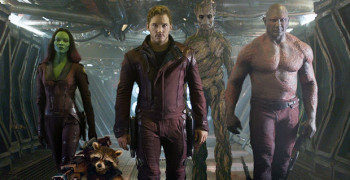 I somehow missed the Guardians of the Galaxy comics when I was growing up, but I was steeped in that whole “milieu” — ragtag crews of strange and quirky characters of mixed planets of origin on interstellar quests and cosmic adventures, from Star Wars to Atari Force. On the fantasy side, you had ragtag crews of strange and quirky characters of mixed realms of origin on mystical quests and quasi-medieval adventures. Collectively, that pretty much sums up my pop-cultural background during those formative years in the late ‘70s and ‘80s.
I somehow missed the Guardians of the Galaxy comics when I was growing up, but I was steeped in that whole “milieu” — ragtag crews of strange and quirky characters of mixed planets of origin on interstellar quests and cosmic adventures, from Star Wars to Atari Force. On the fantasy side, you had ragtag crews of strange and quirky characters of mixed realms of origin on mystical quests and quasi-medieval adventures. Collectively, that pretty much sums up my pop-cultural background during those formative years in the late ‘70s and ‘80s.
That stuff was put down as escapism, then and now.
And, yep, it was.
When life got crappy, disappointing, or just boring, there was always the promise of derring-do on Barsoom, which we could pine for along with John Carter staring wistfully at the red beacon of Mars. The next wardrobe could be a gateway to Narnia, but in the meantime we could roll up characters and get down to an all-night session of Dungeons and Dragons with friends who had imaginations similarly primed for a little bit of escape. Safer than drugs, anyway.
Guardians of the Galaxy, the new Marvel/Disney film from director and co-writer James Gunn, is a love letter to us — to anyone who grew up with that wild-eyed longing to escape into other worlds, to spend some time with characters who were larger than life and carried the fate of worlds on their shoulders (and yet could still crack a good joke about it all), to boldly go where no man had gone before and discover that, once there, you had to fight a dragon-headed man to win the affections of the green lady. Or whatever. This movie was made for us by people who obviously are “one of us.” Gooble gobble we accept you…
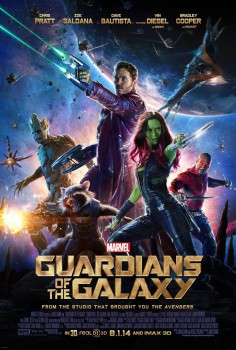 This film is escapism at its best. I’ve been fondly replaying scenes in my head since I saw it two days ago, and I want to escape to it again (alas, with my schedule and all the demands of the real world, I’ll likely have to wait for the Blu-Ray).
This film is escapism at its best. I’ve been fondly replaying scenes in my head since I saw it two days ago, and I want to escape to it again (alas, with my schedule and all the demands of the real world, I’ll likely have to wait for the Blu-Ray).
I’ll jump the gun here and tell you I rate the film 5 out of 5 stars, only to underscore that I reserve that rating for few films — ones I consider to be among the best of their genre, paragon specimens that other films of their type are measured against. Guardians of the Galaxy is unabashed comedic space opera, which really hasn’t been done this well since 1977 and 1980 with those seminal films Star Wars and The Empire Strikes Back.
Surprisingly, we open with a tragic scene of a boy in a hospital waiting room listening to a Walkman while his mother is dying. His grandpa calls him in to say the final goodbye. When his mother reaches out to take his hand, he looks away and refuses to respond, the moment too overwhelming and painful. Seconds later when his mother dies, the full shock of the moment he has just let slip away hits him with the impact of finality and he loses it, screaming for his mother too late. Too late. His grandpa pulls him from the room and tells him to wait outside the door. The boy, disoriented, completely untethered by grief, runs out into an open field beneath the cold stars, and…a spaceship appears and beams him away. Escape. Writ large.
Cue to 26 years later on a distant planet where the now-grown orphan, now a space pirate — a “ravager” who is part Han Solo, part Indiana Jones — is on his way to steal an orb. At first, we might wonder who is this strange fellow who looks like he got his outfit from the set of Firefly and his cool mask from Tony Stark. But then he turns on his trusty Walkman with the same cassette tape (“Awesome Mix Vol. 1” — a gift from his mother), and he is shuffling and dancing — aided by rocket boots — to Redbone’s “Come and Get Your Love” across a landscape teeming with weird little reptilian kangaroo rats (which our hero kicks when they get in the way, much to the chagrin, I’m sure, of PETALF — People for the Ethical Treatment of Alien Life Forms).
Then the title splashes across the screen in bold letters like they were transmogrified straight from a comic-book splash page. And right then my face broke into a silly grin, hoping this movie would be exactly what it felt like it was going to be.
It was.
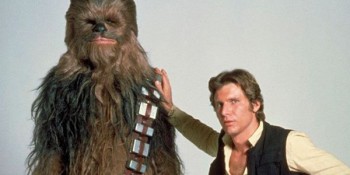 Peter Quill (Chris Pratt) — who goes by the name Starlord even if everyone else refuses to call him that — also happens to be “one of us,” i.e., he grew up with the same pop-culture frame of reference. So, for instance, once it becomes clear that some of the most powerful forces in the galaxy are after the Orb, he notes to another character that the Orb has “an Ark of the Covenant, Maltese Falcon vibe to it.” He inspires his fellow Guardians with the rousing tale of how Kevin Bacon got a town to dance. Pratt’s timing and delivery is spot on, and the clever asides are what we think we might say if we were in the same predicaments. Making us connect to him even more are the moments when he fails — in trying to be Han-Solo cool, he sometimes makes an ass of himself, as when he heroically rescues Gamora (Zoe Saldana), but then puts his foot in his mouth telling her how heroic he was.
Peter Quill (Chris Pratt) — who goes by the name Starlord even if everyone else refuses to call him that — also happens to be “one of us,” i.e., he grew up with the same pop-culture frame of reference. So, for instance, once it becomes clear that some of the most powerful forces in the galaxy are after the Orb, he notes to another character that the Orb has “an Ark of the Covenant, Maltese Falcon vibe to it.” He inspires his fellow Guardians with the rousing tale of how Kevin Bacon got a town to dance. Pratt’s timing and delivery is spot on, and the clever asides are what we think we might say if we were in the same predicaments. Making us connect to him even more are the moments when he fails — in trying to be Han-Solo cool, he sometimes makes an ass of himself, as when he heroically rescues Gamora (Zoe Saldana), but then puts his foot in his mouth telling her how heroic he was.
He is thrown into prison with the characters who will become his comrades on his hero’s journey — a snarky raccoon named Rocket (voice of Bradley Cooper); Rocket’s sidekick Groot (voice of Vin Diesel), an ent with a three-word vocabulary; Drax the Destroyer (Dave Batista), whose racial trait of taking everything literally is used to brilliant comic effect; and Gamora, an assassin who is the “adopted” daughter of Thanos, but who has decided to be on team good over team destroy-the-world.
The jailbreak is the first amazing set piece of many. Later we find ourselves on a mining colony inside the skull of a dead Celestial (!), and on the planet Xandar as its people fight to keep the crazy Kree Ronan (Lee Pace) from wiping it out with the Infinity Stone.
All right, this is all crazy cosmic stuff, and when handled poorly it can be painful to watch (Exhibit A: Green Lantern [2011]). When done well, it can be exhilarating, and here it provides plenty that is worthy of a name like Marvel.
I admired the hell out of this movie. When I say it does this genre (comedic space opera) about as well as it’s ever been done, I mean in just about every area. To make my point, it’ll help to break those components down and take them one by one:
1. Every character steals the show
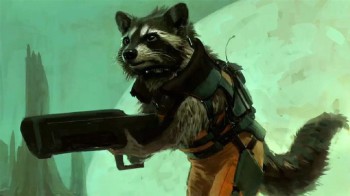 The core characters are all pitch perfect. I’ve read numerous reviews of the film now, and note with interest the usual observation about this or that character stealing their scenes. What’s notable is that in this case, it’s been said by different reviewers about nearly every one of the primary ensemble cast. The talking raccoon steals it. Drax steals it. Starlord steals it. The tree of limited vocabulary steals it. And Gamora is so frickin’ hot, obviously she steals it. Take your pick.
The core characters are all pitch perfect. I’ve read numerous reviews of the film now, and note with interest the usual observation about this or that character stealing their scenes. What’s notable is that in this case, it’s been said by different reviewers about nearly every one of the primary ensemble cast. The talking raccoon steals it. Drax steals it. Starlord steals it. The tree of limited vocabulary steals it. And Gamora is so frickin’ hot, obviously she steals it. Take your pick.
The casting is terrific — I mean, I absolutely loved Batista as Drax, just to take one example. The pro wrestler managed to nail the humor and bring the pathos, so that by turns you laughed at the character and felt sad for him. Each of these characters has a side that is sad, a loss with which we sympathize or empathize. Their bravado or snarkiness conceals the grief, but each has a moment that hits the right notes of pity or compassion without being sentimental. For instance, when Quill glimpses the scars on Rocket’s back from all the genetic modification it took to create an intelligent, anthropomorphic raccoon, that one fleeting moment is all it takes. We frequently laugh at the feisty rodent, but we aren’t snickering down at him.
We come to care for each of these characters. And when things get too warm-and-fuzzy, there is the modulating balance of a character like Rocket sarcastically commenting on it (Remember how the Scream films could be funny while still being scary with this sort of meta-commentary? There we had an in-story character remarking on how something was following a formula — “don’t go into the basement alone”; “don’t have sex” — which provided laughs but which also defused the cliché while reinforcing the knowledge that, formula or not, the characters were still going to be killed. I think something like that is at work here — when a character in the scene acknowledges the voice in our head that starts to say, “Oh, that’s a bit melodramatic,” the voice is silenced and the sentiment is allowed to pass the inner critic’s gate).
2. Ancillary Characters: Get to Know ‘Em
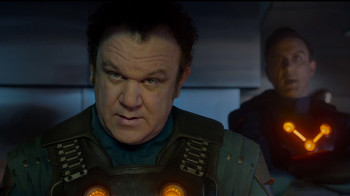 Supporting characters, for the most part, are not given short shrift here (Glenn Close’s Nova Prime notwithstanding, and she is given a couple good lines that sketch in that character as much as we really need). The Collector (Benicio del Toro) and Yondu (Michael Rooker) are only given a couple scenes, but you will not forget them. Yondu even gets a huge pay-off, and a unique weapon that would have belonged to a primary character in any other film.
Supporting characters, for the most part, are not given short shrift here (Glenn Close’s Nova Prime notwithstanding, and she is given a couple good lines that sketch in that character as much as we really need). The Collector (Benicio del Toro) and Yondu (Michael Rooker) are only given a couple scenes, but you will not forget them. Yondu even gets a huge pay-off, and a unique weapon that would have belonged to a primary character in any other film.
Probably the most common failing in summer blockbusters is that we don’t get to know any of the ancillary characters. When they die, they’re just background fodder. They serve a special effect, but little else: we have zero emotional investment in them. They’re the “red shirts,” to borrow from the old Star Trek convention that if some unknown crew members beamed down with the core characters to a new planet, those crew members (distinguished by their red uniforms) were likely going to die. [SPOILER ALERT AHEAD] But Gunn and co-writer Nicole Perlman make sure we get to know a supporting character or two, like Xandarian Denarian Saal (Peter Serafinowicz). So when the entire Xandarian air defense is wiped out as the Kree battleship pushes through, it is not just a special effect. We feel, along with Rocket the Raccoon, a tinge of pain by knowing someone up there personally, by name, and Saal thus stands in for the thousands who just met their fiery end (it also reinforces our feelings for Rocket, a narrative two-fer). In virtually any other film of this type, that little touch would have been overlooked.
And Corpsman Dey, as played by John C. Reilly, provides a couple brief scenes of comic gold, but his character is also used at the end to underscore — with a little snippet of a scene of him coming home to his family — what was at stake on an individual level, which psychologically we can relate to much better than the old “the planet is in danger of being destroyed” scenario. Tell us there was a Civil War battle where 8,000 soldiers died and we think, “Wow, that’s a lot of people.” Tell us about one soldier who died in that battle and you can have us in tears. Amazing that it took a light-hearted space romp, and a director who started out with Troma working on The Toxic Avenger, to utilize those particular buttons.
3. Banter!
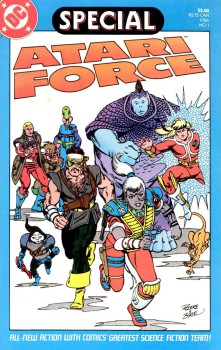 These characters banter and bicker; they verbally spar and crack wise. They talk a lot (except Groot, but the one line he says over and over is used ingeniously throughout the film). This is the Joss Whedon template, and those of us who fell in love with it back in the days of Buffy the Vampire Slayer and Firefly are just very happy that the Whedonverse has infused the Marvel universe with its verbal delights.
These characters banter and bicker; they verbally spar and crack wise. They talk a lot (except Groot, but the one line he says over and over is used ingeniously throughout the film). This is the Joss Whedon template, and those of us who fell in love with it back in the days of Buffy the Vampire Slayer and Firefly are just very happy that the Whedonverse has infused the Marvel universe with its verbal delights.
The key is twofold: what the characters say is often funny, but it also fleshes out the characters and progresses their relationships. Sounds simple, huh? Dialogue 101. Name five other recent summer blockbusters that managed to do it. Can’t, off the top of your head, can you? When I do get out to one of these multi-million-dollar juggernauts, what I am most often amazed by is not the special effects, but how they could have spent so much money on everything else and pretty much neglected the script. More puzzling is when it’s clear they did pay a lot of people to come up with one — four or five people will get screenwriting credits — but even with a committee of writers they didn’t manage to get more than five minutes of useful or interesting dialogue into the finished cut. As Quill says after the Infinity Stone unleashes a massive explosion of power, “What the f-?”
What we most often get are characters who have these amazing adventures, are confronted with mind-blowing new realities like interdimensional portals or cars that turn into sentient robots from another planet, and they don’t say anything like we would say (or like we would want to say if we had five minutes notice to come up with some witty zingers, because, granted, often we think of the perfect thing to say just after the moment has passed to say it). The characters in summer blockbusters — often despite decent actors doing the best they can with the material given them — consequently come across as a little dumb, or not terribly interesting. It doesn’t have to be this way. See Guardians of the Galaxy or The Avengers as cases in point of how the dialogue can be fun, quotable, quirky, and cool. (Or any Tarantino film, for that matter.)
[ADDITION 8/5/14: I must emphasize that good banter takes finesse. It must A) be organic, naturally fit into the scene; B) be humorous, clever, dramatic, or otherwise interesting; C) give us more insight into the characters, making us feel more deeply about them. Just having characters bicker a lot — as with a lot of contemporary horror flicks — can be tedious. Take The Ruins (2008) for example: the characters were constantly streaming from the mouth about their plight and throwing verbal barbs at one another, but it was pretty lame and just made you not care that they were going to be eaten by flesh-eating plants. And for a brilliant counter-example that perfectly illustrates my point, take the Drew Goddard horror film The Cabin in the Woods (2012) — co-scripted by Joss Whedon! That’s finesse. You don’t just want to re-watch it to see the monsters and the decapitations again; you want to revisit those characters and memorize the quotable dialogue.]
When crazy stuff is going on, have the characters comment on how crazy it is. Going back a few years, the film Stargate failed utterly for one simple reason: when they stepped through the gate, neither Kurt Russell’s character nor anybody else registered even an iota of wonderment, or once commented on the fact that, hey, we are literally standing in another world millions of light years from the planet we had been on our whole lives. Punch up the dialogue! Get Whedon or some other script doctor in, people. Hell, I’ll do it for you, and I come a lot cheaper than Whedon.
4. Interplanetary scenery should be a wonder to behold, like those pics from the Hubble space telescope
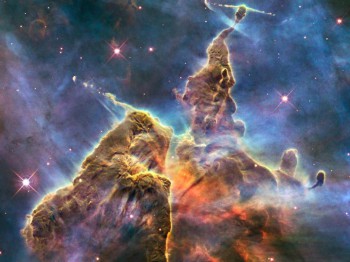 We’ve been to a lot of other worlds in recent films. For all the vast CGI, much of it is of a sameness. The asteroid belt in the recent Star Trek film where the crew first encounters Kahn may have cost millions to render, but they may as well have gone back to that back lot where Kirk fought the Gorn in the original series; it’s more interesting to look at. But the set design here is gorgeous. The backgrounds are breathtaking, what was evoked by the best renderings of the likes of Jim Starlin and other comics artists when they were trying to convey cosmic. The overall design really does look like the panels of a comic magically brought to life. We get a glimpse of a Celestial lumbering across a planet, and my God that could have been the model that Jack Kirby was drawing from, so perfectly did they render it from the blueprint of those four-color artifacts.
We’ve been to a lot of other worlds in recent films. For all the vast CGI, much of it is of a sameness. The asteroid belt in the recent Star Trek film where the crew first encounters Kahn may have cost millions to render, but they may as well have gone back to that back lot where Kirk fought the Gorn in the original series; it’s more interesting to look at. But the set design here is gorgeous. The backgrounds are breathtaking, what was evoked by the best renderings of the likes of Jim Starlin and other comics artists when they were trying to convey cosmic. The overall design really does look like the panels of a comic magically brought to life. We get a glimpse of a Celestial lumbering across a planet, and my God that could have been the model that Jack Kirby was drawing from, so perfectly did they render it from the blueprint of those four-color artifacts.
And there are gobs of detail; this is a lived-in world — I am sure there will be much searching and pausing when this comes out on Blu-Ray to scour the backgrounds and see, for instance, just which life forms were in the Collector’s collection.
5. Follow the action!
In the frenetic Michael Bay style of recent summer blockbusters, lots of things blow up and things fly around and people are tossed about amongst flailing robot limbs and other parts and this goes zooming somewhere and something else falls down and WHAT’S GOING ON? Yeah, we get the gist: giant robots are dueling and much chaos ensues. Someone films it. Then an MTV-music-video editor comes in, cuts the footage up into 1- or 2- second bits and randomly reassembles it. And then very loud noises are added to the soundtrack. It’s bombardment, sometimes kind of impressive in the moment, but largely forgettable because all that action is pretty interchangeable.
But I’ve got to hand it to Gunn. His action sequences are just as frenzied and manic, but they are so well choreographed that I could follow everything that was happening at every moment: which characters were doing what to whom and how. Just as many explosions and harrowing actions, but so well planned out that it all made sense. One cheat some filmmakers overuse is to slow things down Matrix style, but Gunn mostly keeps it in real time — I can only think of one slow-motion shot, and that was to underscore a joke rather than so you could tell what the heck was going on.
6. Costume and make-up should be a wonder to behold, like an Elton John concert
It’s space opera, so as with Star Trek and Star Wars and most other films with Star in the title, many of the aliens are not terribly alien except that they have head-to-toe body paint and dress like Liberace. But the costuming and make-up here are top-notch, gorgeous to behold, reminiscent of Guillermo del Toro (one reviewer noted that the design of Groot could have fit in nicely in a del Toro film). And Drax, man, is he visually striking. Again, like a Starlin character just stepped right off the page and became flesh.
7. Soundtrack: Hooked on a Feeling
The soundtrack becomes the sixth member of the Guardians team. Really. And the feel-good ‘70s AM pop-rock selections here, incongruous as they are to the sci-fi setting, work perfectly. A whole article has been written on it here.
8. CGI should not stand for Crappy Graphical Interface
Some brilliant achievements have been made with CGI in recent films, so I’m not going to claim anything here is a first — like when people said Gollum in the Lord of the Rings films was the first CGI “star.” But I do tend to notice the “seams” and incongruities of CGI. Even with Gollum — just one moment when you become consciously aware that the CGI character’s hand isn’t really touching that tree limb, it can for a moment take you out of the film, aware again of the artifice that had held you spellbound. Here, I just plain never thought about Rocket as a CGI image that was never actually there in the scene. As far as animals go, he is hands down the best ever done. And the expressions given to Groot more than make up for his lack of vocabulary — his proud, self-satisfied expression at one moment in particular had the entire theater audience roaring in laughter.
This is CGI at its best. As another reviewer noted, it takes untold thousands of man-hours by anonymous computer programmers to bring these characters to life, but here they really caught some magic.
9. Narrative!
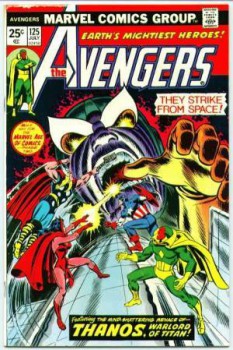 Did I mention that I admire the hell out of this movie? From a storyteller’s perspective, I really do. I thought the pacing was terrific, and the callbacks packed a punch. That scene of Quill’s mother dying at the beginning? I wasn’t expecting the callback to come when it did, but the echo of his not taking his mother’s hand brings in some sincere pathos in a movie that is mostly rollicking, light-hearted fun yet has a heart — it just never hits you over the head with it. Gunn can be subtle and underplay the human emotions, making them all the more genuine because they aren’t forecast by rousing orchestral strings and characters getting teary-eyed and sappy.
Did I mention that I admire the hell out of this movie? From a storyteller’s perspective, I really do. I thought the pacing was terrific, and the callbacks packed a punch. That scene of Quill’s mother dying at the beginning? I wasn’t expecting the callback to come when it did, but the echo of his not taking his mother’s hand brings in some sincere pathos in a movie that is mostly rollicking, light-hearted fun yet has a heart — it just never hits you over the head with it. Gunn can be subtle and underplay the human emotions, making them all the more genuine because they aren’t forecast by rousing orchestral strings and characters getting teary-eyed and sappy.
Some reviewers quibbled that the movie was a little overstuffed. I disagree. Yes, there are a lot of secondary characters, but that is part and parcel of the genre — many of them are set-ups for future films, of course, just as they would have been introduced for future storylines in serial comic books that had to deliver new installments twelve times a year. You don’t have to know who any of them are, or have a degree from Marvel University — just let all the strange names and references to other races and ancient wars and Infinity Gauntlets be ambient noise and follow the main story.
The way this film balances all-out action with memorable character moments, the hilarity peppered with little callbacks that carry weight, all while eschewing long expository origin stories in favor of revealing tidbits of the characters’ pasts naturally interwoven into the story — these are all marks of good storytelling (hats off to Gunn and his scriptwriting co-pilot Perlman).
10. The badder the bad guy the better (sometimes)
Thanos makes an ominous appearance, but the heavyweight of this film is Ronan. He looks perfect — when he strides across the screen, he just registers bad-ass. His motivation is of the religious-fanatic “purification through genocide” nastiness variety, but since he doesn’t chew up the scenery and never loses his cool, it plays as far more threatening than, say, the awful incarnation of Cobra Commander in the latest G.I. Joe debacle. I thought, “They got him right. If only the studio who owns the Fantastic Four franchise would’ve given as much cred to Doctor Doom.” When he and Drax go at it, the comic-book chemistry is perfect: a high-powered hero fruitlessly challenging a cosmic-level villain, like the Thing throwing some punches at Thanos. Nice try, but where’s the Hulk when you need him?
Frankly, Ronan as a character is not terribly interesting in his own right — not like Loki. In this case he’s a one-dimensional villain, because we have an ensemble cast of really entertaining good guys stealing the spotlight. He provides the catalyzing threat and must come across as a credible one, which he does.
Oh, and the one moment when Ronan’s gravitas cracks, even he gets a laugh.
In closing, this is obviously a film by a very good filmmaker who is a fan of the genre, but who doesn’t take any of it too seriously (there’s a laser-packing raccoon; how seriously can you take it?). Yet he has respect for the characters and the story; he seems to get how fun and good and healing escapism can be. In stark contrast, Green Lantern (the film that serves as how-bad-it-can-turn-out counterpoint to pretty much every one of the points on my list, in fact) seemed made by people who took the material too seriously, while not really caring about the material at all, if that makes any sense.
And did you catch Howard the Duck? There’s a statement for you. Take a Marvel character that launched one of the worst films ever made, and in thirty seconds make him cool again.
Let’s hope they keep makin’ ‘em the Marvel way.
Guardians of the Galaxy: 5 out of 5 stars
[…] Film Review: Guardians of the Galaxy is Space Opera at its Best […]
[…] Film Review: Guardians of the Galaxy is Space Opera at its Best […]